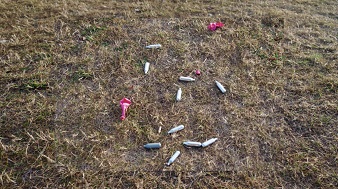The sale of nitrous oxide to minors is officially banned as of this week in Belgium, with police warning that its illicit distribution and use as a party drug will be prosecuted.
The law was passed last year, but with a period for commercial adjustment. Producers must now ensure that canisters for making chantilly cream for desserts carry warnings over recreational abuse.
Belgian broadcaster RTBF said the change in status was accompanied by new police regulations covering Brussels, Charleroi, Liege and other cities. But the products remain available for purchase, including online where policing would be difficult.
The ingestion of laughing gas – traditionally associated with pain relief in dentists' chairs – is known to exacerbate traffic accidents but has also been associated with legacy psychological issues.
Related News
- 1 in 7 young Belgian drivers regularly take laughing gas before driving
- Belgium wants to ban selling laughing gas to minors
- One-fifth of young people drive after using drugs on monthly basis
According to a February report by Brussels-based drug therapeutic researchers Eurotox, nitrous oxide is growing in popularity and availability as a recreational 'high' among teenagers. It claims that three in 100 early-secondary pupils have used illicit laughing gas at least once. Studies by universities in Brussels and Leuven show higher rates of misuse among students.
RTBF cites an anonymous source as saying it is rare these days for youths at teen parties in the capital not to have purchased illicitly gas canisters parcelled into "balloon-sized" highs consumed repeatedly during party nights.
'Tingling sensation'
Neurologist Dr Nicolas Gaspard of the Erasmus Hospital in Brussels told TV cameras that the gas is "toxic" when used repeatedly with symptoms ranging from a "tingling sensation" in hands to a loss of balance.
Brussels police seized some 60 full-sized canisters in the city last year, with French police confiscating 7 tonnes of the product in January.

